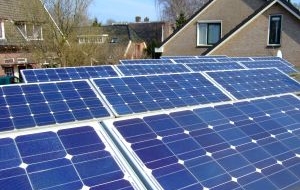EU energy: Consumers to foot the low-carbon bill
 Europeans should brace themselves for years of rising energy bills.
Europeans should brace themselves for years of rising energy bills.The European Union has embarked on a crusade to fight climate change. A tighter carbon market, binding CO2 reductions in buildings and transport, and more renewables are part of the plans, announced in Brussels in January.
But there are concerns that consumers will need to dig much deeper into their pockets to help the EU realise its green ambitions.
After 2013, for example, large-scale energy producers will need to buy all of their pollution permits at auction.
Customers can expect to see this extra cost reflected in their energy bills, with the European Commission forecasting a 10 to 15 per cent increase in energy prices by 2020.
EU policies are not solely to blame for rising energy costs, however. By 2030, the EU will need to import 70 per cent of its fossil fuel needs, according to the commission. And there are concerns that some of Europe’s external energy suppliers are unable or unwilling to deliver sufficient fuel at low prices.
Russian winter
Gazprom, Russia’s state-owned energy giant that supplies a quarter of the EU’s gas, is investing heavily in EU pipelines and making acquisitions of European companies. But the International Energy Agency warns that production levels from Gazprom’s Siberian gas fields are diminishing, and the company is making relatively few new supply-side investments.
The January proposals are in general “the right answer” to the double challenges of energy security and climate change, says Holger Krawinkel of the Federation of German Consumer Organisations.
But Krawinkel argues that the commission has made an important mistake by not putting greater emphasis on energy-efficiency improvements – a much cheaper way to cut CO2 than trying to reduce emissions during power production.
Some argue that “homemade” energy can be Europe’s saviour. In the coming decade, consumers should benefit from “dramatic price drops” for solar electricity panels, says Winfried Hoffman, president of the European Photovoltaic Industry Association.
And if the commission succeeds in its separate quest, launched in September last year, to liberalise and integrate the EU’s energy market, renewable energy may become even cheaper and flow in ever greater quantities into European households.
Much depends on the political will in EU member states, however. Germany and France are determined to shield their energy giants from the commission’s liberalisation agenda, setting the stage for a major battle in Brussels.
You can return to the main Market News page, or press the Back button on your browser.

